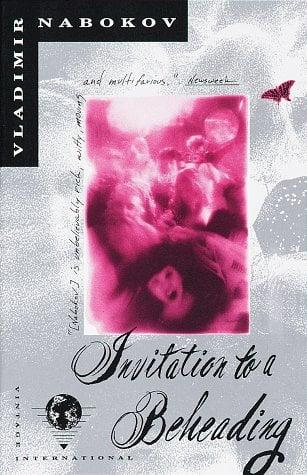
Bend Sinister
Book Description
In a darkly whimsical world where the absurd meets the dictatorial, a grieving widower must navigate a treacherous landscape of intellectual oppression and personal despair. With sinister forces closing in, his love for a lost wife clashes against the chilling demands of a totalitarian regime that seeks to control both mind and heart. As haunting memories intertwine with a desperate struggle for freedom, each choice becomes a treacherous gamble. Will his fight for individuality ignite a flicker of hope, or will it consume him entirely in a chaotic blaze of despair?
Quick Book Summary
"Bend Sinister" by Vladimir Nabokov is a darkly satirical dystopian novel set in a totalitarian state. The story follows Adam Krug, a renowned philosopher and recent widower, as he grapples with grief and the rapidly encroaching authoritarian regime of Padukgrad. The leader, Paduk, an old classmate turned dictator, rises to power and imposes cruel, absurd controls over intellectual and personal freedom. As Krug refuses to cooperate with the regime's oppressive ideology, he faces escalating threats to himself and his beloved son, David. The novel intertwines Krug’s personal suffering with the collective suffocation of free thought, offering a chilling, absurdist critique of totalitarianism, the vulnerability of individuality, and the enduring, yet tragic, power of memory and grief.
Summary of Key Ideas
Table of Contents
Totalitarianism and the Abuse of Power
Adam Krug, a brilliant philosopher, becomes the reluctant protagonist in a society shifting into tyranny. Recently widowed, Krug’s emotional landscape is dominated by profound grief for his wife, Olga. Into this void advances the Ekwilist regime, led by Paduk—a man with a grudge from Krug’s school days. Paduk's regime enforces conformity and controls every aspect of life. Krug’s intellectual standing makes him a valuable asset for propaganda, but he is resistant to the regime’s overtures and pressures, setting himself on a collision course with authority.
Individuality Versus Social Conformity
Krug’s private mourning is invaded by increasing state interference. The rulers are depicted with an absurd, almost darkly comedic edge, yet their power is real and suffocating. Krug finds no solace in the public sphere; instead, he is alienated by the regime’s relentless intrusion into his personal life, especially its desire to use him as a symbol for their cause. As Krug rebuffs repeated attempts to extract loyalty, the Ekwilist authorities begin to apply more direct and terrifying forms of intimidation.
Grief, Memory, and the Persistence of Loss
David, Krug’s young son, becomes the emotional fulcrum of the story. When threats against Krug escalate, his paternal instincts and vulnerabilities are fully exposed. The regime kidnaps David, hoping to break Krug’s resistance. This escalation reveals the regime’s willingness to exploit innocence to achieve ideological submission. Krug's struggle ceases to be only about philosophical ideals—it becomes a desperate, personal struggle to save his son from the inhuman machinery of the state.
Absurdism and the Nature of Reality
Nabokov interweaves grotesque absurdity with psychological depth, using language play, metafictional asides, and shifting perspectives to create an unsettling atmosphere. While the narrative mocks totalitarian logic, its consequences are anything but farcical. Individuality is persistently crushed by bureaucracy, and the line between the public and private self blurs as Krug’s reality splinters under pressure. The novel’s metafictional elements, including Nabokov’s direct commentary, further destabilize the reader’s sense of certainty and amplify the surreal, nightmarish qualities of the narrative.
Resistance, Complicity, and the Cost of Defiance
At its core, "Bend Sinister" is a meditation on grief, memory, and the high stakes of resistance. Krug’s final acts are marked by both heroic defiance and tragic futility. Succumbing to the combined forces of personal loss and political evil, Krug’s end illustrates the ultimate cost of standing alone in the face of overwhelming oppression. Nabokov leaves the reader with a haunting sense of the fragility of individual freedom and the enduring, if sometimes doomed, human yearning for love and autonomy even amidst the darkest absurdities of life.
Download This Summary
Get a free PDF of this summary instantly — no email required.





